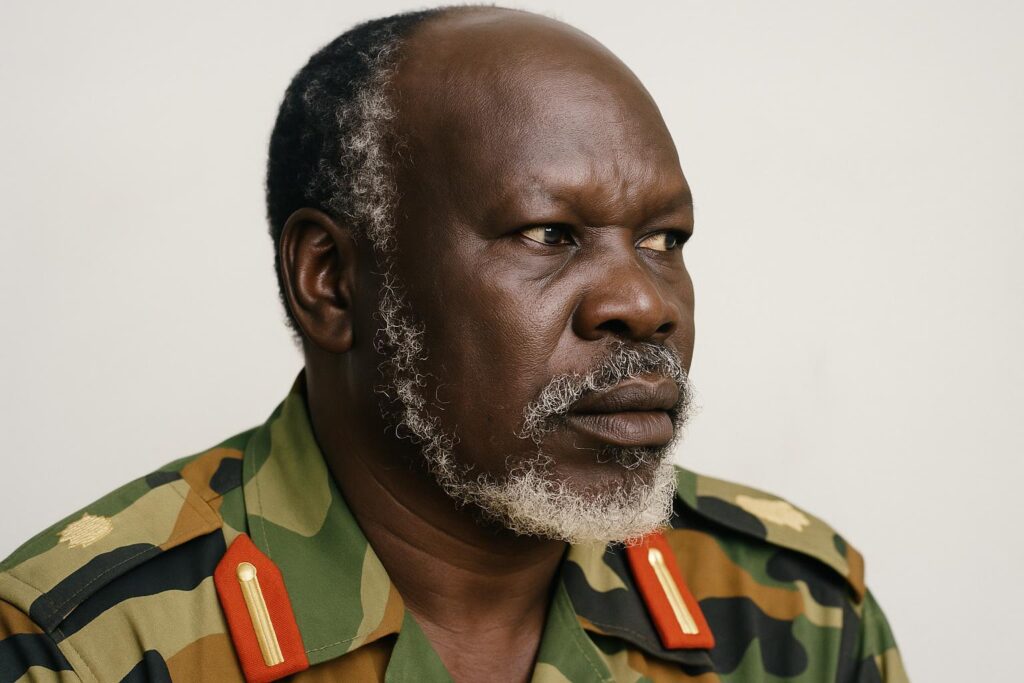Tense Political Landscape in Juba
South Sudan’s fragile transition faces another hurdle after retired security general Khamis Abdel-Latif urged President Salva Kiir to replace First Vice President Riek Machar with Peacebuilding Minister Stephen Par Kuol.
The appeal arrives as Machar, co-signatory of the 2018 Revitalized Agreement, remains under house arrest amid a criminal probe that officials insist is apolitical.
Kiir Faces Choice Amid SPLM-IO Split
Machar’s SPLM-IO fractured in April, producing a Juba-based wing led by Stephen Par and a field faction rallying behind deputy Oyet Nathaniel.
State ministers say recognition of Par would keep the 2018 deal alive, yet opponents fear it could sideline a key signatory and revive armed contestation.
Machar’s Detention and Its Legal Context
Government spokespersons repeat that Machar’s confinement stems from a specific investigation rather than political calculus, adding that removal would follow only an adverse judicial finding.
Analysts in Juba note the clause mirrors past detentions of officials whose cases quietly lapsed, underscoring opacity in the young nation’s legal culture.
Gen. Khamis’s Proposal and Rationale
In his weekend statement, Gen. Khamis argued that Oyet’s reported alliance with Thomas Cirillo’s NAS guerrillas proves the peace pact has ‘expired’, demanding swift elevation of Par to restore cohesion.
He warned that hesitation would invite ‘external meddling’, reflecting long-standing sensitivities about regional diplomacy and donor leverage since independence in 2011.
Civil Society Questions Unilateral Moves
Prominent observer Edmund Yakani cautioned that any action sidelining a signatory violates the Revitalized Agreement and risks labeling leaders as ‘peace spoilers’.
He urged parties to recommit to the roadmap for elections slated in 2024, warning that public fatigue with elite feuds could ignite fresh unrest.
Regional and International Calculations
The Intergovernmental Authority on Development, guarantor of the 2018 pact, is expected to meet this month; diplomats say consensus among neighbors remains to keep Kiir and Machar at the same table.
Oil markets, humanitarian agencies and regional investors watch closely; renewed fighting could disrupt pipelines and complicate relief access from Mombasa to Bentiu.
Possible Scenarios Ahead
If Par is appointed, Juba gains a partner ready to fast-track security unification but risks alienating forces still loyal to Machar in Upper Nile and Equatoria.
Conversely, maintaining Machar could preserve the letter of the accord yet prolong policy paralysis. Both options underscore the need for conciliatory dialogue, observers insist.


